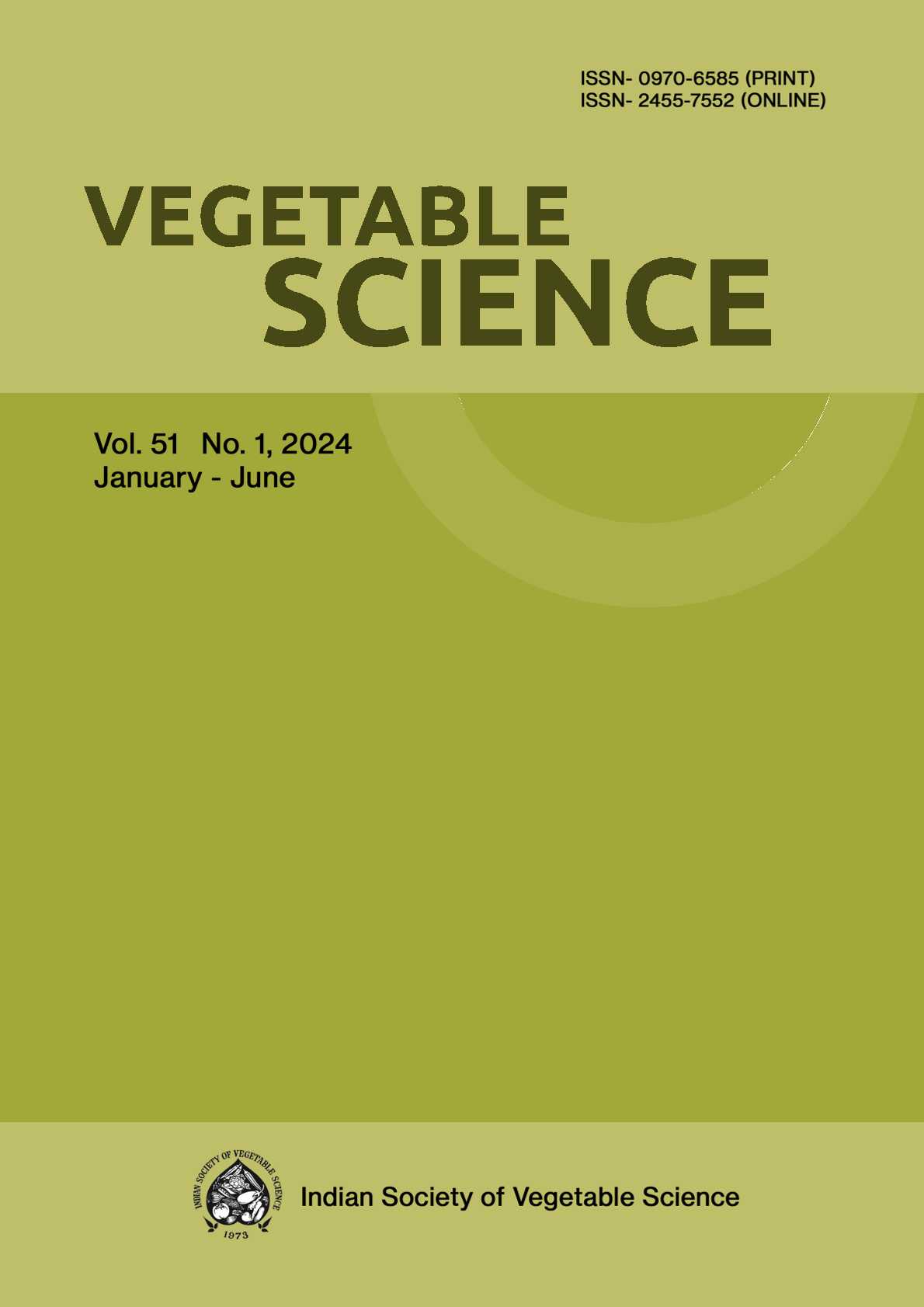Tomato genotypes grafted on eggplant: Physiological and biochemical tolerance under waterlogged condition
DOI:
https://doi.org/10.61180/Keywords:
Grafting, tomato, waterlogging tolerance, physiological and biochemical traitsAbstract
Grafting has been used to reduce infections by soil-borne pathogens and to enhance the tolerance against abiotic stresses. Under natural environmental conditions, tomato plants often get exposed to transient waterlogging situation. Eggplant as a rootstock for tomato has ability to tolerate waterlogging condition to some extent. An experiment was conducted to evaluate 20 tomato genotypes grafted on brinjal rootstock ‘IC-111056’ at ICAR-Indian Institute of Vegetable Research, Varanasi, India under waterlogged condition during 2016. Grafted plants were exposed to waterlogged condition in a big water tank for 96 h. Various physiological, biochemical and yield parameters such as, chlorophyll content index (CCI), chl a, chl b and total chl content, chlorophyll fluorescence yield (Fv/ Fm), H2O2, CAT, SOD, proline, MDA, etc were recorded after 96 h of waterlogging, and subsequently 24 h after relieving the stress condition. All 20 combinations of tomato and brinjal grafted plants showed high variation in physiological, biochemical and yield parameters under waterlogging stress. Highest yield was obtained in scion EC-528422 followed by Kashi Aman, WIR-13706, D-3-1, EC-620354 and EC-620401grafted over eggplant rootstock IC-111056. These graft combinations have also registered better physiological and biochemical adaptations during and after relieving from waterlogging stress.
Downloads
Published
Issue
Section
License

This work is licensed under a Creative Commons Attribution-NonCommercial-NoDerivatives 4.0 International License.






